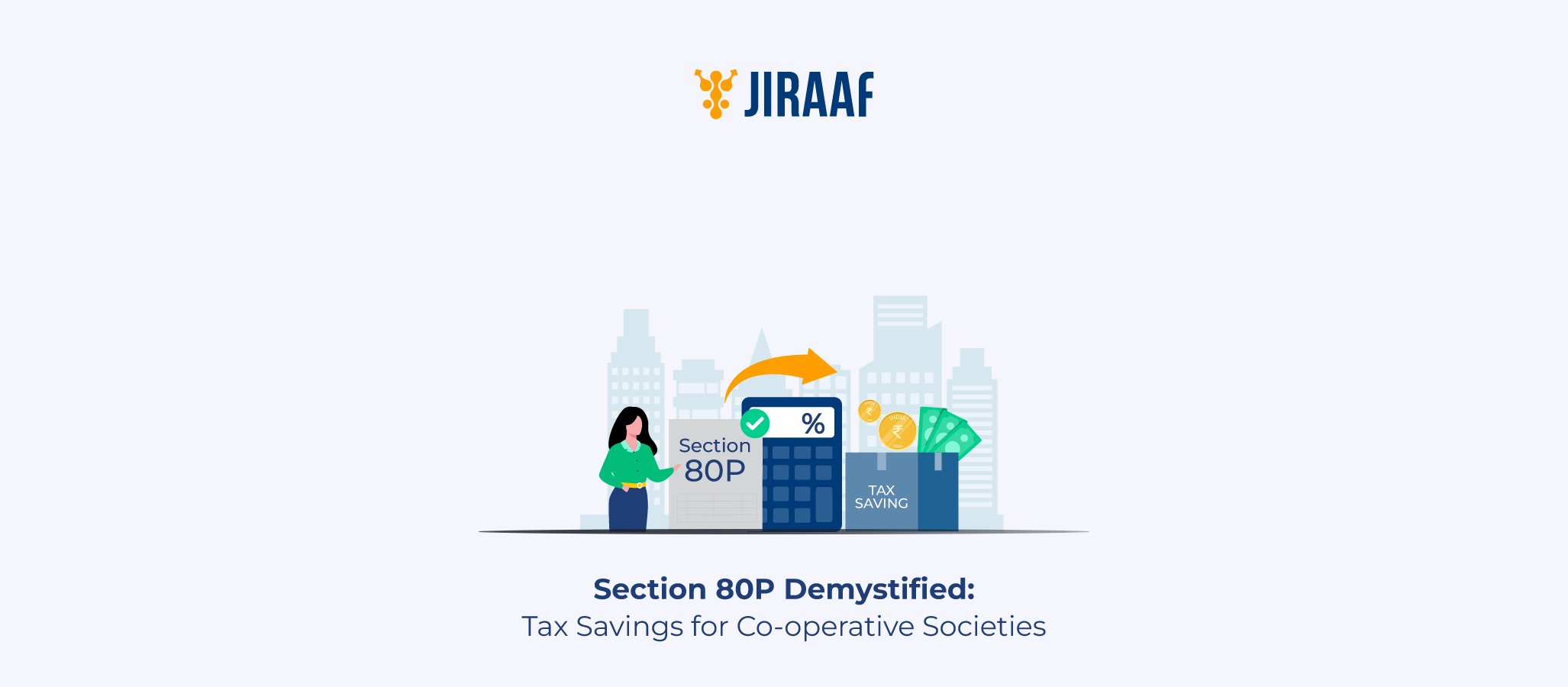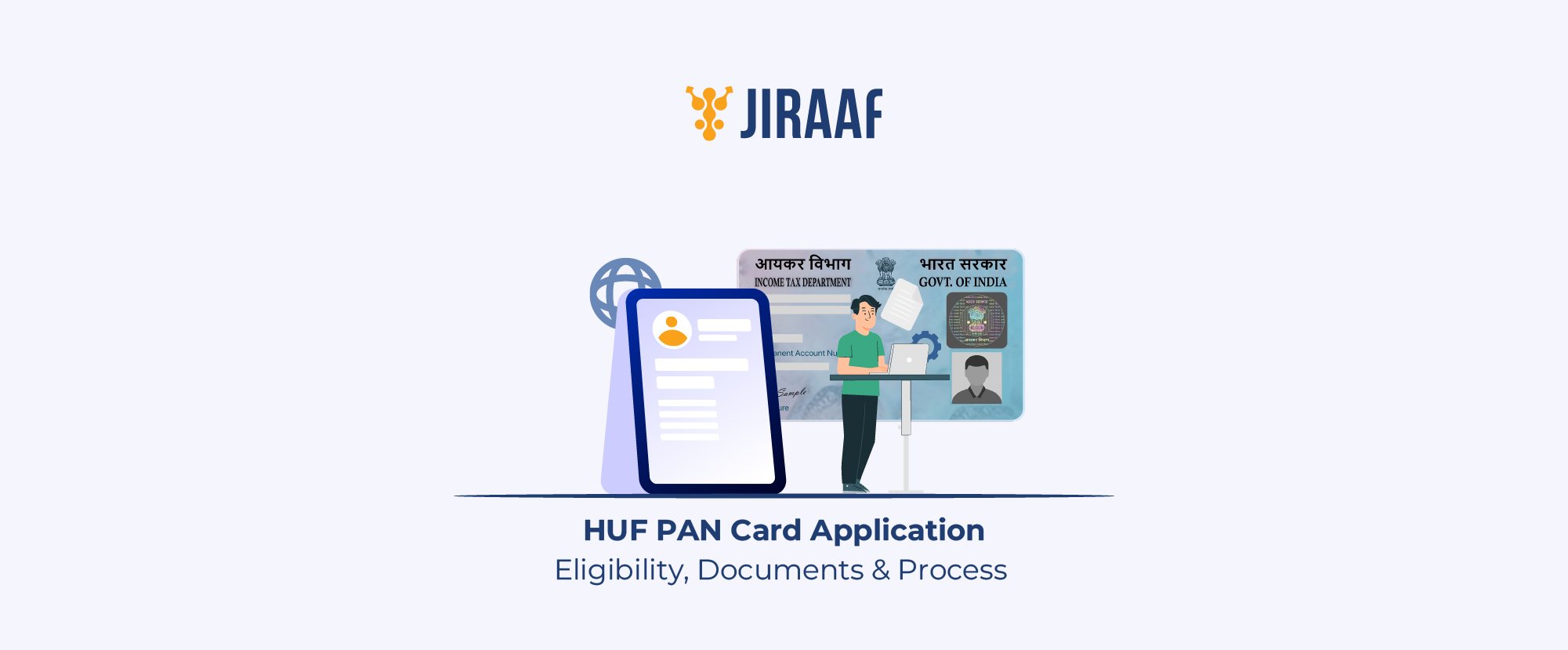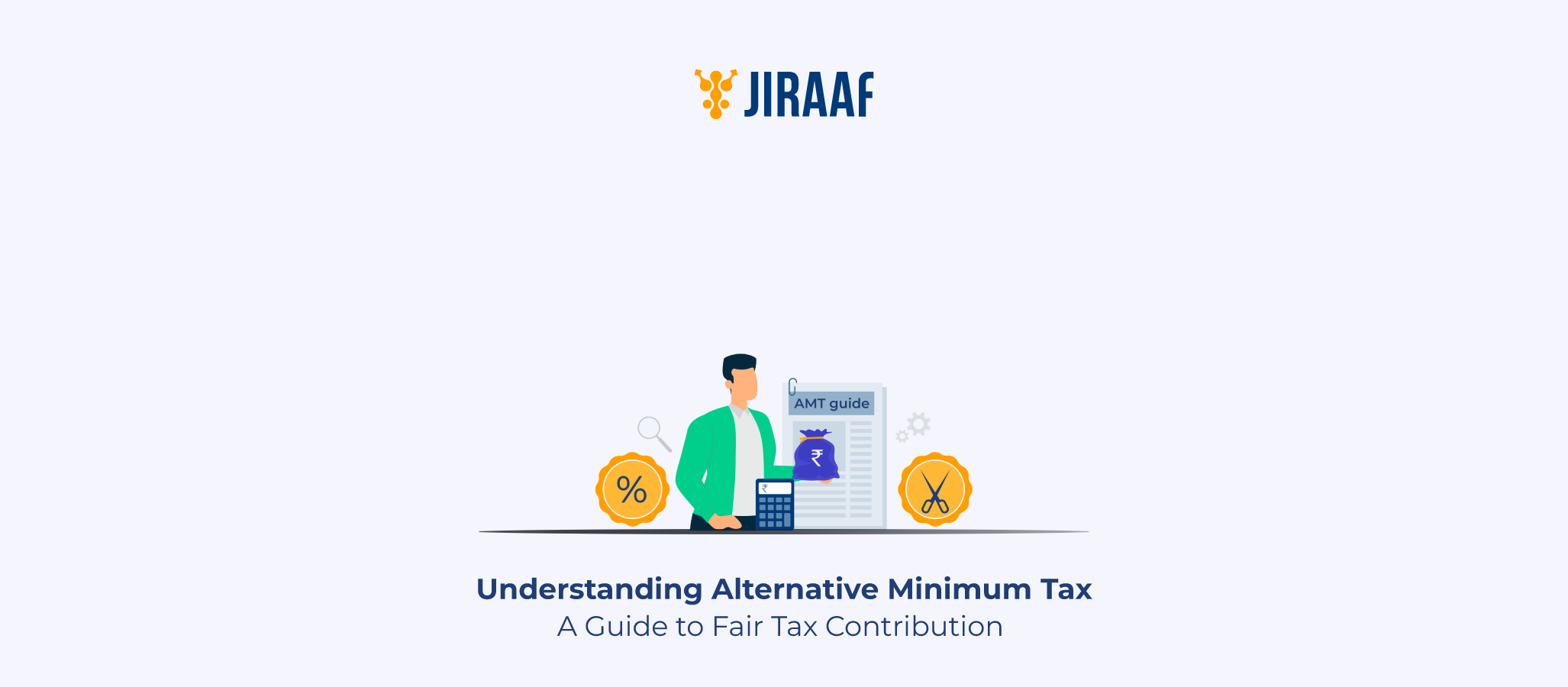If you’re part of a cooperative society, chances are you’ve heard about Section 80P. But what does it really mean for your society’s taxes? Simply put, Section 80P of the Income Tax Act is a provision that allows certain income earned by cooperative societies to be deducted from their total taxable income.
It’s a powerful tool designed to specifically promote financial empowerment at the grassroots level in rural and agricultural communities.
This section of the Income Tax Act is particularly vital for taxpayers because cooperative societies serve as the financial lifeline for millions across India by offering affordable credit and essential services. Without such tax benefits, their ability to operate efficiently and serve their members would be seriously hindered.
Let’s dive into everything you need to know, from what qualifies under Section 80P to common pitfalls and how to claim it correctly.
What Is Section 80P of the Income Tax Act?
It offers tax deductions on the income earned by cooperative societies, provided they are engaged in specific eligible activities. Section 80P was introduced to encourage and support cooperative movements, especially in agriculture and rural finance.
This section covers deductions applied only to cooperative societies registered under the Cooperative Societies Act and not to cooperative banks or societies functioning like commercial banks due to later amendments and judicial interpretations.
This section aims to boost economic self-reliance among rural populations and small businesses.
Eligibility Criteria for Claiming 80P Deduction
Not every cooperative society is eligible for this deduction. The eligibility conditions include that the entity
- Must be a registered cooperative society under the Cooperative Societies Act or relevant state law.
- Should be engaged in specified activities like banking (limited to primary agricultural credit societies and primary cooperative agricultural and rural development banks), cottage industry, marketing of agricultural produce, providing credit, etc.
- Cooperative banks licensed by the RBI, including regional rural banks, are excluded from claiming deductions under Section 80P following the Finance Act 2016 and Supreme Court rulings.
In short, eligibility depends on
- The nature of activity
- The type of society
- The legal and operational structure
Types of Income Eligible for Deduction Under Section 80P
Here’s a rundown of income categories that qualify:
- Interest earned from loans to members (e.g., credit cooperatives).
- Profit from the collective sale of agricultural produce grown by members.
- Income from cottage industry activities undertaken by members.
- Rent from letting out godowns or warehouses used for agricultural produce.
- Interest from investments with cooperative banks or central cooperative societies.
- Income from fishing and allied activities related to members.
If the income stems directly from activities with or for members, it usually qualifies for deduction under Section 80P.
Section 80P(2): Sub-Clauses and Their Benefits
The most critical part of Section 80P is subsection (2), which specifies various sub-clauses detailing eligible activities and corresponding deductions:
| Sub-section | Activity Covered | Deduction Benefit |
| 80P(2)(a)(i) | Banking or providing credit to members | 100% of profits |
| 80P(2)(a)(ii) | Cottage industry | 100% of profits |
| 80P(2)(a)(iii) | Marketing agricultural produce | 100% of profits |
| 80P(2)(a)(iv) | Purchase and supply of agricultural inputs | 100% of profits |
| 80P(2)(a)(v) | Processing agricultural produce (no power used) | 100% of profits |
| 80P(2)(a)(vi) | Collective disposal of members’ labor | 100% of profits |
| 80P(2)(a)(vii) | Fishing/co-op fishing societies | 100% of profits |
| 80P(2)(c) | Other income not exceeding ₹1 lakh (consumer society: ₹2 lakh) | Up to ₹1–2 lakh |
| 80P(2)(d) | Interest/dividends from investments with other co-ops | 100% of income |
| 80P(2)(e) | Rent from warehouses/godowns | 100% of income |
This breakdown is crucial when determining what type of income is eligible and how much of it can be deducted.
Income Not Eligible Under Section 80P
Several categories of income are explicitly excluded, namely:
- Interest income from commercial banks
- Income from letting out properties not related to members’ activities
- Profit from sale of assets not used for business with members
- Capital gains on investments in shares of non-co-op entities
Post-2006 amendments and Supreme Court rulings (like Totgars Cooperative Sale Society Ltd.) further narrowed eligibility, particularly for cooperative banks.
Recent Judicial Decisions & CBDT Circulars on 80P
A few landmark rulings and updates have brought about significant changes in the section and its enforcement. They’re listed below:
- Totgars Co-op. Sale Society Ltd. v. ITO (2010): Interest income from surplus funds deposited in banks was held as taxable.
- Citizen Co-op Bank case (SC): Reiterated that cooperative banks are not eligible under 80P(2)(a)(i).
- CBDT Circular No. 10/2008: Clarified that 80P is a special provision for primary agricultural credit societies.
Staying updated on these interpretations is crucial, especially if your society’s nature or income streams are complex.
How to Claim Section 80P Deduction in ITR
Here’s how to do it:
- Select the correct ITR form (usually ITR-5).
- Fill out the “Schedule VI-A” section under deductions.
- Attach a computation sheet highlighting the deduction claimed under each relevant sub-clause.
- Keep documents ready like:
- Registration certificate
- Financial statements
- Proof of income source
- Member-wise transaction logs (if applicable)
Pro tip: Use CA guidance for complex income sources or multi-activity societies.
Section 80P vs Section 10(26) and Other Exemptions
Let’s compare.
| Parameter | Section 80P | Section 10(26) |
| Applies To | Cooperative societies | Scheduled Tribe individuals |
| Type | Deduction | Full exemption |
| Focus | Activity-based relief | Community-based relief |
| Conditional? | Yes (based on activity) | Yes (based on geography & tribe) |
While 80P is widely used for societies, 10(26) is more niche.
Example of Section 80P Deduction
Let’s say that a rural cooperative credit society in Maharashtra offers loans exclusively to its 320 members. It earns ₹12 lakhs in interest income and ₹1 lakh from surplus fund deposits in a commercial bank.
- ₹12 lakhs from loans to members → 100% deductible under 80P(2)(a)(i)
- ₹1 lakh interest from bank → Fully taxable as per Totgars ruling
Final taxable income = ₹1 lakh.
DOs and DON’Ts for Claiming Section 80P Deduction
| DOs | DON’Ts | |
| 1 | Maintain proper records of member transactions | Don’t claim deduction on interest from commercial banks |
| 2 | File under correct ITR form (usually ITR-5) | Avoid mixing member and non-member income |
| 3 | Know which sub-clause of 80P you fall under | Don’t assume automatic eligibility without checking rules |
| 4 | Stay updated on judicial rulings and CBDT clarifications | Don’t miss audit and compliance deadlines |
Conclusion
Section 80P is more than just a tax deduction; it’s a recognition of the vital role cooperative societies play in India’s economic ecosystem. But with its benefits come conditions, complexities, and nuances. Whether you’re part of a rural credit society, agricultural marketer, or consumer co-op, understanding Section 80P ensures that your hard-earned income supports your members, not just your tax bill.
FAQs
Who can claim a deduction under Section 80P?
Only cooperative societies engaged in specified activities (like credit, marketing of produce, and cottage industries) are eligible. Cooperative banks licensed by RBI are generally excluded, except for primary agricultural credit societies and primary cooperative agricultural and rural development banks.
Is interest income deductible under 80P?
Only interest from loans to members or investments with co-op banks is allowed. Interest from commercial banks is not.
Can housing societies claim deduction under 80P?
Yes, but only for specific activities and within prescribed limits.
What’s the deduction limit for consumer societies?
Up to ₹2 lakh under 80P(2)(c) if no other specific sub-clause applies.
Discover fixed income investments with Jiraaf, a SEBI registered online bonds platform that educates and brings access to a wide array of bonds. Sign up today to explore diversified fixed income investment opportunities to support your goal-based wealth creation journey. Start investing!









